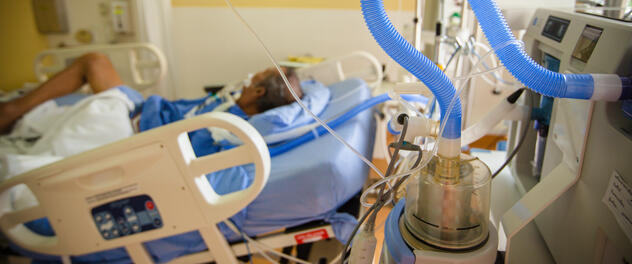 Improving healthcare outcomes
Improving healthcare outcomes
Dr. Laudanski's vision is to use his research findings to restore long-term health for people who experience a critical illness, traumatic injury or complex surgery.
Overview
The Perioperative and Critical Illness Resilience Laboratory studies ways to improve long-term outcomes in people who survive critical illness or trauma or undergo major surgery.
The quality of survivorship is often subpar for years after the initial illness or surgery. It's difficult to determine how much having a critical illness or major surgery may speed up aging, senescence or degenerative processes such as dementia, atherosclerosis and lung dysfunction. Even less is known about recovering the pre-illness level of health and happiness.
The Perioperative and Critical Illness Resilience Lab of principal investigator Krzysztof Laudanski, M.D., Ph.D., seeks ways to improve patient preparation and recovery. This is crucial to maximize surgery benefits and the outcomes of critical illness and trauma.
Our lab recognizes that there's a need for more sophisticated understanding of the molecular mechanisms controlling the immune system during and after the kind of severe insult that can occur to the body from trauma, major surgery or a critical illness. These health problems include serious conditions such as sepsis, COVID-19 and traumatic brain injury, for example.
It's also vital to translate the scientific knowledge gained in the lab to medical interventions across the spectrum of care — before, during and after injury or surgery. This process requires a multifaceted effort. It involves understanding biological processes, innovation and implementation, and active involvement by the person who is sick or undergoing surgery.
It's becoming more common to have complex and taxing surgery or to be a survivor of a critical illness or trauma. Understanding issues that affect long-term recovery is vital for judging the risks and benefits of specific interventions and providing meaningful care.
Assessing what drives recovery must include the biological fundamentals that govern the body's response to the stress of injury and trauma. Workflows rely on engagement from both healthcare providers and patients. Innovative technologies must be used to provide effective and meaningful care to more people while allowing healthcare providers to perform at the top of their skills. Our overarching aim is that modern healthcare add years and quality of life to survivors.
Our lab also has a mission to provide strong mentoring, sponsorship and talent development for future healthcare providers and researchers. We provide programs for students and trainees to work in our lab and we seek collaboration opportunities with other researchers.
About Dr. Laudanski
Dr. Laudanski is a critical care medicine expert whose broad research interests include recovery after critical illness and surgery, medical decision-making, racial bias in health care, innovative health care processes, and mentorship. Read more about Dr. Laudanski.